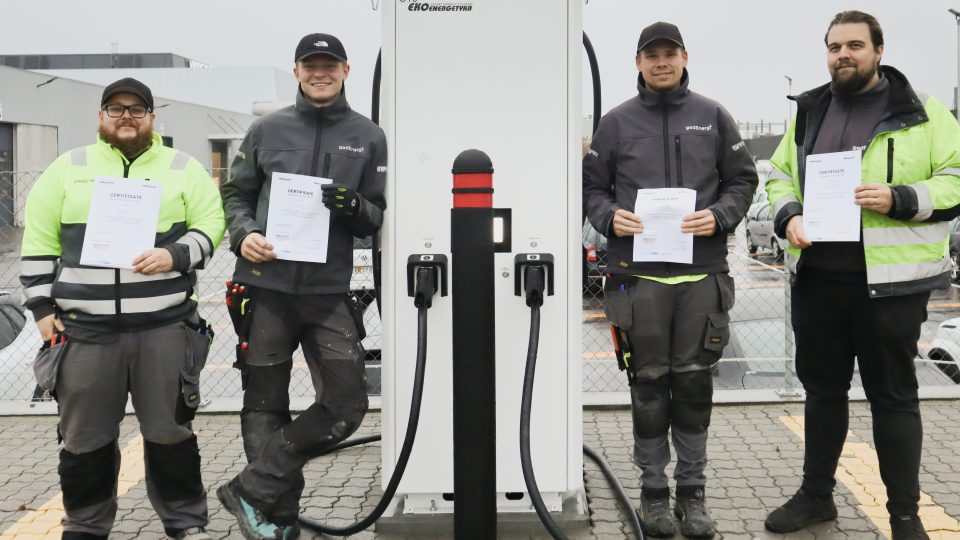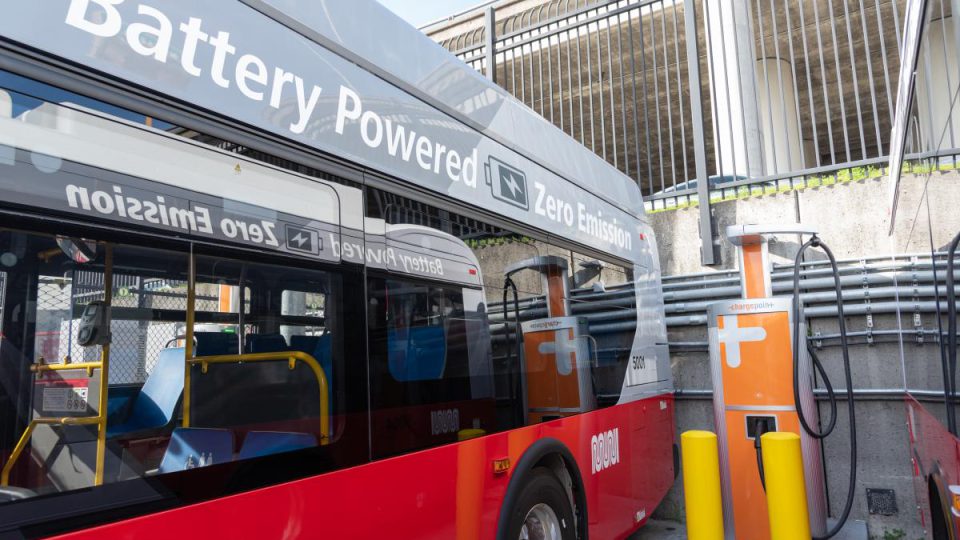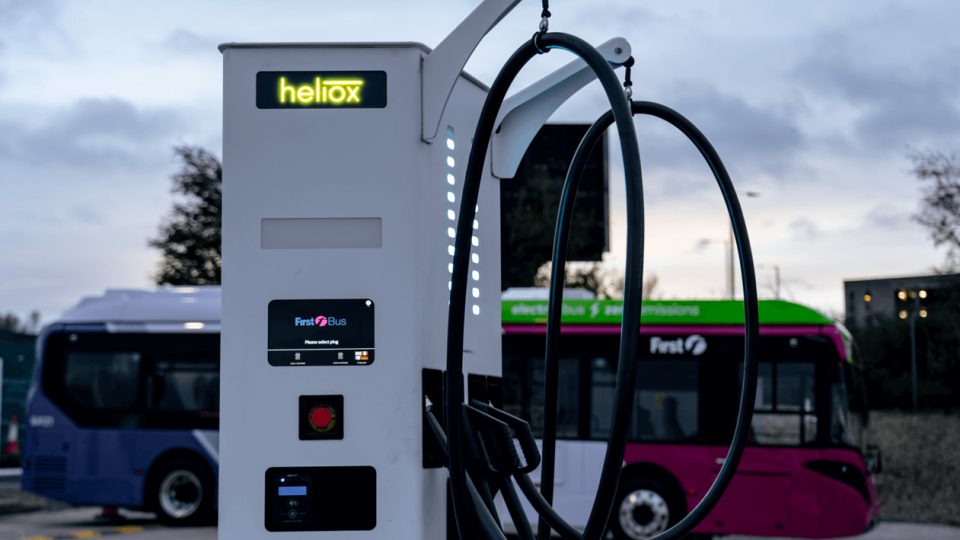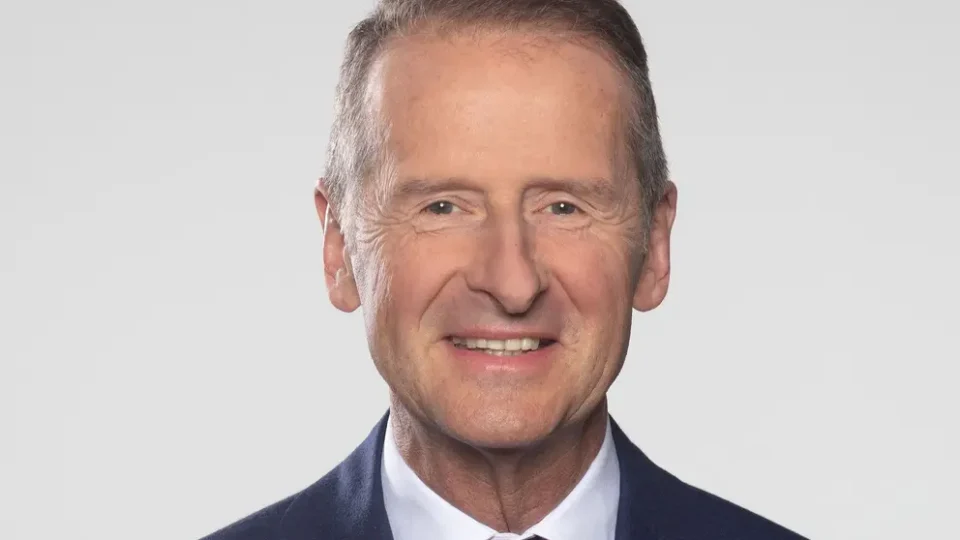First Bus ‘borrows’ charging infrastructure to Openreach’s EV fleet while buses are in service
First Bus is entering a collaboration with the UK’s largest broadband network provider, Openreach, granting them access to its rapid Electric Vehicle (EV) charging infrastructure at bus depots nationwide. First Bus has the ambition of reaching a zero-emission bus fleet by 2035. Openreach joins the ranks of DPD and Police Scotland, plugging into this innovative […]

First Bus is entering a collaboration with the UK’s largest broadband network provider, Openreach, granting them access to its rapid Electric Vehicle (EV) charging infrastructure at bus depots nationwide.
First Bus has the ambition of reaching a zero-emission bus fleet by 2035.
Openreach joins the ranks of DPD and Police Scotland, plugging into this innovative shared infrastructure initiative from one of the UK’s largest bus operators.
First Bus – Openreach to use chargers in bus depots
The initial phase of the partnership will witness up to 30 Openreach Electric Vehicles from its fleet charging at First Bus depots in Glasgow, Aberdeen, and Leicester while buses are in service. This enables Openreach engineers to cover more ground, reduce their environmental impact, and dedicate more time to the needs of their customers.
Currently, Openreach has more than 3,000 electric vehicles in its fleet – but it is aiming to convert all its diesel fleet to zero emissions by 2031 and stands as a founding member of EV100, a global initiative uniting companies dedicated to accelerating the transition to electric vehicles this decade.
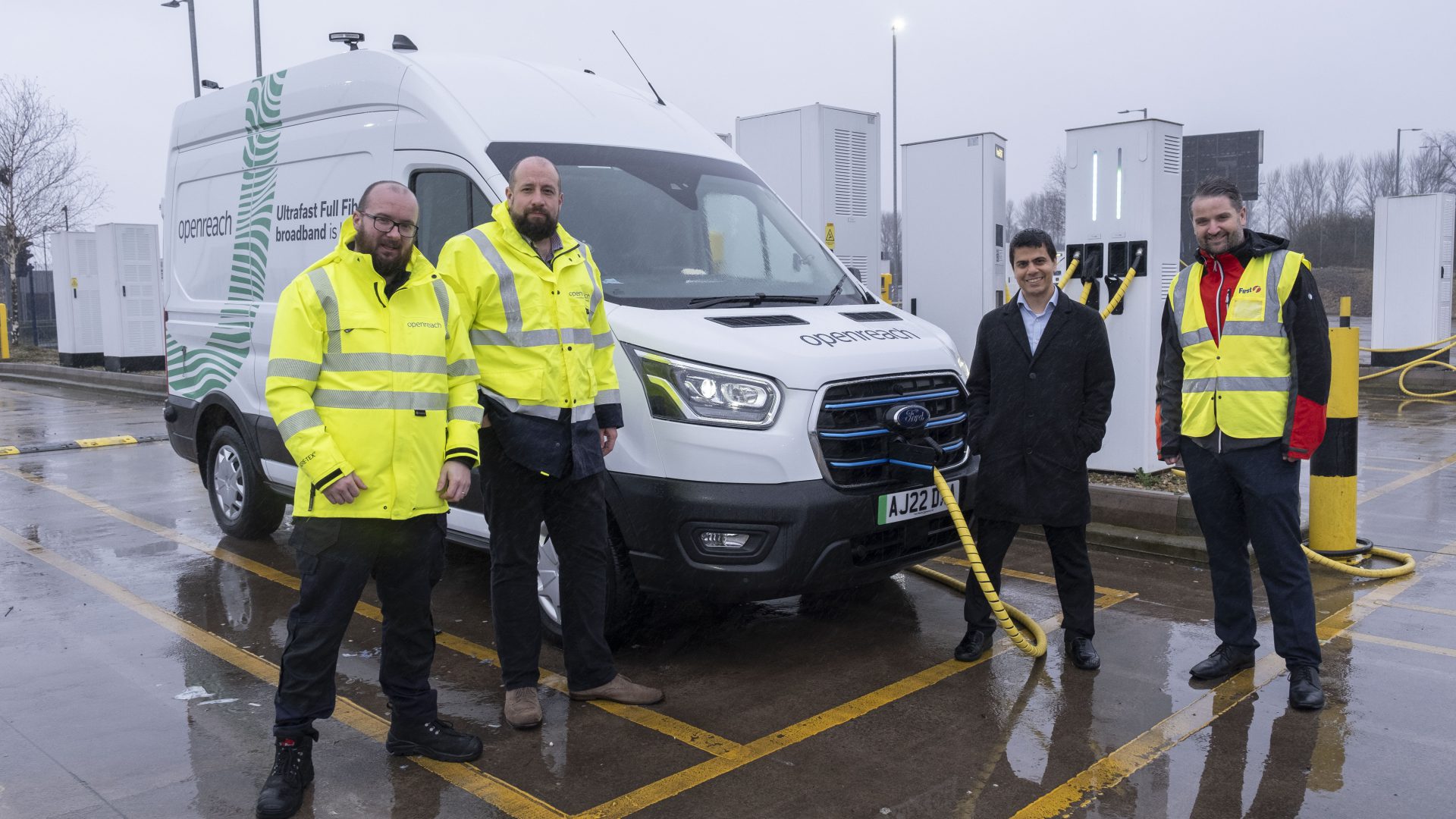
Faizan Ahmad, Decarbonisation Programme Director at First Bus, said: “We’re excited about this collaboration, showcasing the power of teamwork to reduce carbon emissions and improve air quality in the communities we serve. The shift to electric is a journey for businesses nationwide, and we are offering a smart, community-friendly solution that’s simple, effective, and benefits everyone.”
Robert Thorburn, Openreach Scotland’s Partnership Director, said: “We are excited to try a new approach with First Bus that can potentially help both our businesses. As two major fleet operators in the UK, it makes sense for us to explore the most efficient ways to power up our electric vans and buses. First Bus has made a massive investment in charging infrastructure and using their empty stations to juice up our vans will take pressure off public charge points. Our engineers often live in flats or apartments where charging is not yet an option, so this will make life easier for them too. It is all about learning and trying new, sustainable ways of working. There are many hurdles on the low carbon journey, and businesses need to join forces to overcome them, help drive wider adoption of electric vehicles and talk to government on issues like charging infrastructure availability.”
Andrew Kirkby, Head of Fleet Sustainability at BT Group, added: “We are constantly looking at new options that can help us the transition of one of the largest commercial fleets in the UK to electric vehicles, which will be vital to achieving our goal of being a carbon net-zero business by March 2031. Enabling UK-wide charging infrastructure will be a key part of how we achieve this, and we welcome trials that will help accelerate the removal of diesel vehicles from our fleet.”


